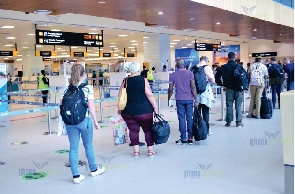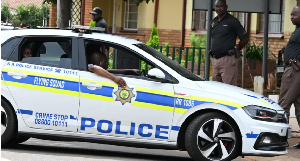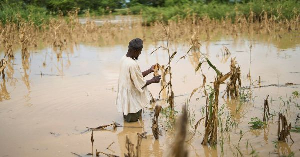Natural disasters fit be di last tin for your mind before you travel for holiday or migrate.
But to know some few simple tins fit make di difference between life and death in case of emergency.
Afta di tragic earthquakes wey happun for Turkey and Syria, on 6, February 2023 and kill thousands of pipo, we don put togeda a guide on wetin to know wen you dey travel go earthquake-prone locations.
Before you leave:
Always register wit your kontri embassy for di destination wey you dey travel go.
To register you go either call di embassy directly or some kontries go allow you to input your travel plans online.
Wen you arrive:
Carry local emergency and embassy phone numbers for your wallet, or save dia number for your phone.
Wen you check into your hotel room, identify safe places to hide in case earthquake happun - under a heavy desk or table; against an inside wall; stay away from windows, mirrors or heavy furniture wey fit fall over – avoid location near di stairwells.
Just a note say contrary to popular belief, doorways no generally dey stronger dan any oda part of a building and no suppose be your go-to place for shelter in di event say earthquake happun.
During earthquake:
If you dey your hotel room, go immediately to one of your identified safe places, lie down and hold on.
For rooms without strong furniture, stay for one corner of di building and cover your face and head wit your hands.
If di earthquake happun while you dey for bed and di room no get overhead light fixtures, stay for bed and protect your head wit pillow.
If you dey outdoors, move as far away as possible from di buildings, overhead utilities.
If you dey drive, park for area away from bridges, overpass and power lines, stay inside wit your seatbelts on until di shake-shake stop.
If you dey trapped:
No on matches or lighter as you fit cause gas wey dey leak to explode.
Cover your mouth wit cloth or a handkerchief, and move about as little as possible to avoid to inhale dangerous dust.
Tap pipe or use whistles or oda available materials to make noise and alert rescuers.
Only shout if you absolutely need to as e fit cause you to inhale toxic dust.
Afta earthquake happun:
Wait until di shaking completely stop before you leave your safe place.
If di building or hotel wey you dey no damage well-well, e dey best to stay inside.
Odawise, go outside through di stairways only. E fit be good idea to wear long pants, long-sleeved shirt and strong shoes to protect yourself from broken objects.
Also watch out for fallen power lines or broken gas lines. If you dey for a low-lying coastal area, listen for tsunami warnings and move go higher ground.
Contact your embassy
Afta dem assure you and your travelling companions say una dey safe, contact your embassy or check your kontri foreign office website to find out how best to proceed.
Most foreign offices dey set up special disaster hotlines and email addresses for foreigners abroad wey need help.
If earthquake happun, prepare for aftershocks, dat fit happun minutes to months afta di initial earthquake.
Use telephones for emergency calls only in order to keep lines open for disaster response.
Also make sure to alert friends and family members back home of your safety through Red Cross Safe and Well registry.
If you need medical treatment for respiratory illnesses, rashes or oda sickness weeks afta you return home afta earthquake, dey sure to alert your doctor of di possibility of dust wey you inhale or oda earthquake related sickness dem.
BBC Pidgin of Thursday, 9 February 2023
Source: BBC
















